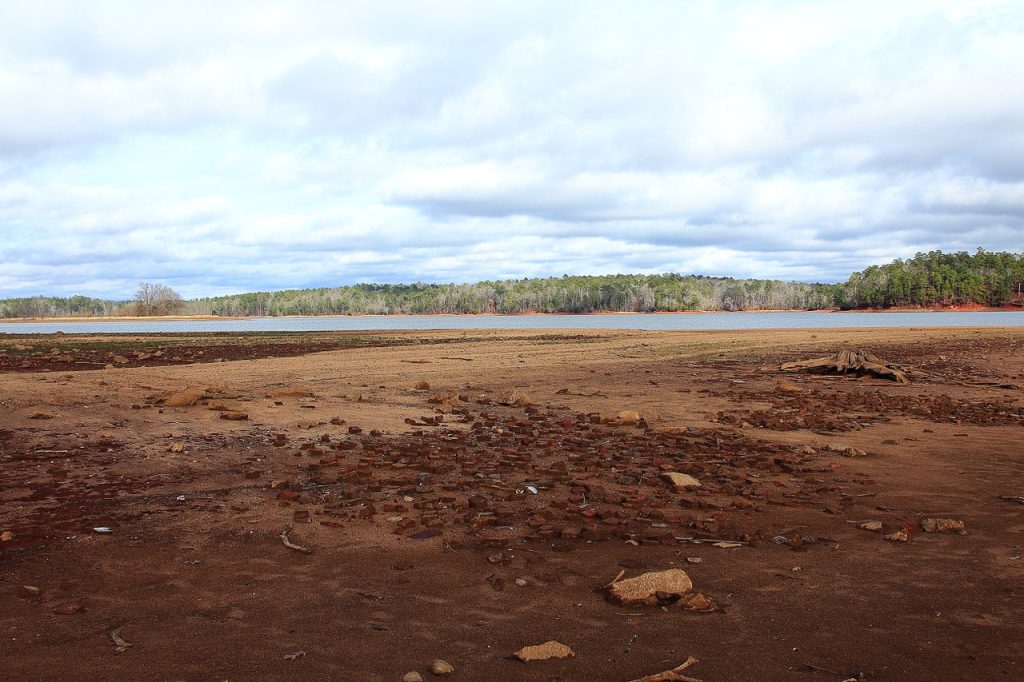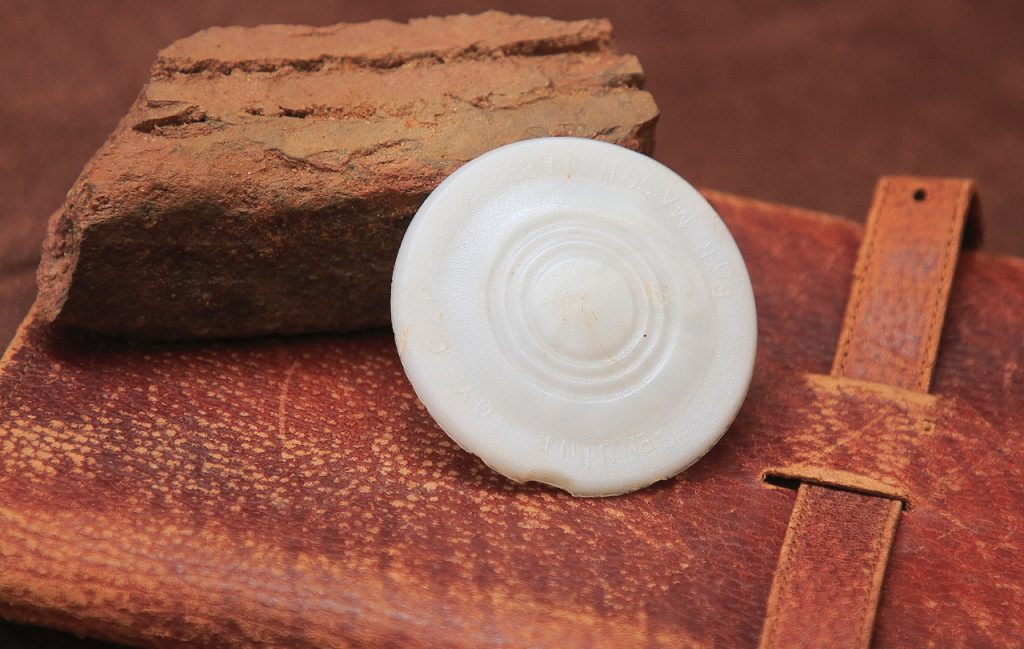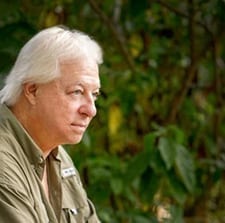Long Lost Lisbon
April 24, 2024By Tom Poland
“The oak was so big, five men could link hands and not reach around it.” On a clear December day I walked where about eight feet of water had retreated. Perhaps I walked where that oak’s roots reached deep into red clay. Wherever that huge oak stood, a plain of blue water had long covered it and everything else.
Around 1954 a dam drowned Lisbon, Georgia. Then last December, Lisbon, like that mythical golden bird associated with renewal, rose from its grave of bricks.
My mother grew up a few minutes from Lisbon and she told me about the oak. Situated as it was, Lisbon had a view of Petersburg, Georgia, and Vienna, South Carolina, drowned towns along the Georgia-South Carolina border in what amounts to a miniscule red-clay Atlantis.

Lisbon looking towards Petersburg site, left, and Vienna, right.
Perhaps I walked where the oak shaded men who drank grog and watched Petersburg boats laden with cotton and tobacco head to Augusta. For sure I walked where its vanquished buildings had stood. Old bricks warmed beneath sunlight once again. All the years of swirling currents had strewn them about haphazardly—a drifting wrought by time. I found a few places where brick foundations remained intact.
I hope to walk among those bricks again but it won’t be anytime soon. Lisbon has once again slipped beneath Clarks Hill Lake, but Lisbon shouldn’t feel picked on. The list of flooded towns in the United States runs long, 165 sites, though it misses Lisbon and Vienna. Make it 167.

Relics from a tobacco-based community.
That December day I scanned the ground hoping to find something extraordinary from long-lost Lisbon. I found bricks aplenty, some with grooves in them. During a drought twenty years ago I had found an antique seal for a Mason jar, a “Genuine Boyd Cap For Mason Jars.” In its prime, the opalescent milk glass fit inside a zinc seal. What did some hardworking family can? What did they eat from the jar on a cold winter day?
Others have long picked over the relics of Lisbon, Petersburg, and Vienna. Seems nothing but bricks remain. As I’ve written before, when all traces of civilization surrender to time and catastrophes only bricks will remain as evidence they existed. Nothing destroys bricks.
Before I left I looked across the water at the point where Petersburg stood and over to my left on a rise among trees where Fort James stood. A bit to the right and far across the mingling waters of the Broad and Savannah Rivers stood Vienna.
Zachariah Lamar founded Lisbon in 1786 near the Broad River in Lincoln County. Change would doom Lamar’s community. Lisbon never had much going for it, at most two stores, a groggery, and a few dwellings. A gradual vanishing act set in as cotton supplanted tobacco as a cash crop. By the early 1820s a decline in prosperity sent folks westward seeking the proverbial better place.
Times being the way they are my guess is many folks don’t care about old forts, Lisbon, Petersburg, or Vienna. They were just places that went away. No, today’s techno types love apps and shopping online. They might do well to contemplate what future civilizations will do to their home. Do you think residents of these three drowned towns thought water would cover them one day? Change changes everything. Someday an interstate might pave where you once lived. Nothing lasts forever.
I have long known about these vanquished towns, massive oaks, and a tiny post office because my mother talked often about them. How dark and moody—how romantic—to know that drowned towns slept nearby. She planted visions in my mind that grew into a desire to explore. To somehow, someday, walk those towns’ remnants. Now I have.
Georgia native Tom Poland writes a weekly column about the South, its people, traditions, lifestyle, and culture and speaks frequently to groups in the South. Governor Henry McMaster conferred the Order of the Palmetto upon Tom, South Carolina’s highest civilian honor, stating, “His work is exceptional to the state.” Poland’s work appears in books, magazines, journals, and newspapers throughout the South.
Visit Tom’s website at www.tompoland.net
Email him at [email protected]





















